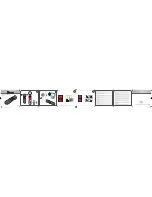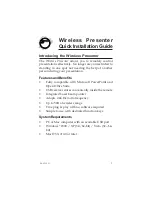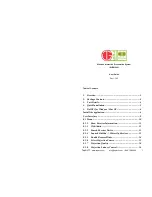
55
Contacting Polaroid
You can call Polaroid toll-free within the U.S.A. at 1-800-897-0356, 7 days a week, 8
A.M.
to 8
P.M.
Eastern Standard Time. When calling with a technical question, ask for an
Electronic Imaging or a Digital Imaging Specialist.
Please identify the Polaroid product and its serial number (if applicable). If possible, have
your system running the software when you call.
We offer a variety of Customer Support Services. Call us for details and applicable fees.
Outside the U.S.A., contact the Polaroid office nearest you.
Internet Support
Technical support is available via the Internet. Visit our Web site at:
www.polaroid.com
PDC 700 Digital Camera Precautions,
Specifications, and Warranty Information
Camera precautions
•
Do not open the camera case or attempt your own repairs. High-voltage internal
components create the risk of electrical shock when exposed. Return your digital
camera to your authorized Polaroid service provider for all maintenance and repairs.
•
Keep the camera away from water and other liquids because moisture creates the
danger of fire and electrical shock. Make sure not to get the camera wet if you are
using it in the rain, at the seashore, or any other location where there is the possibility
of exposure to liquids.
•
Turn off the power to the camera and unplug the AC adapter immediately if water or
any other liquids get into the camera. Using the camera under these conditions creates
the danger of electrical shock or fire.
•
Do not open the battery compartment or unplug the AC adapter when the green LCD
light on the back of the camera is flashing. If the camera loses power while
processing a new image, the new image cannot be stored and can cause corruption of
other stored images.
•
Do not touch the LCD screen.
•
Keep memory cards away from heat, moisture, static electricity, and magnetic fields.
•
Do not expose the lens to direct sunlight for long periods of time.
•
Do not expose the camera to excessive heat or excessive cold. Do not leave the
camera in an automobile where it can be exposed to extremes in temperature (below
13°C (55°F) or above 35°C (95°F)).




































